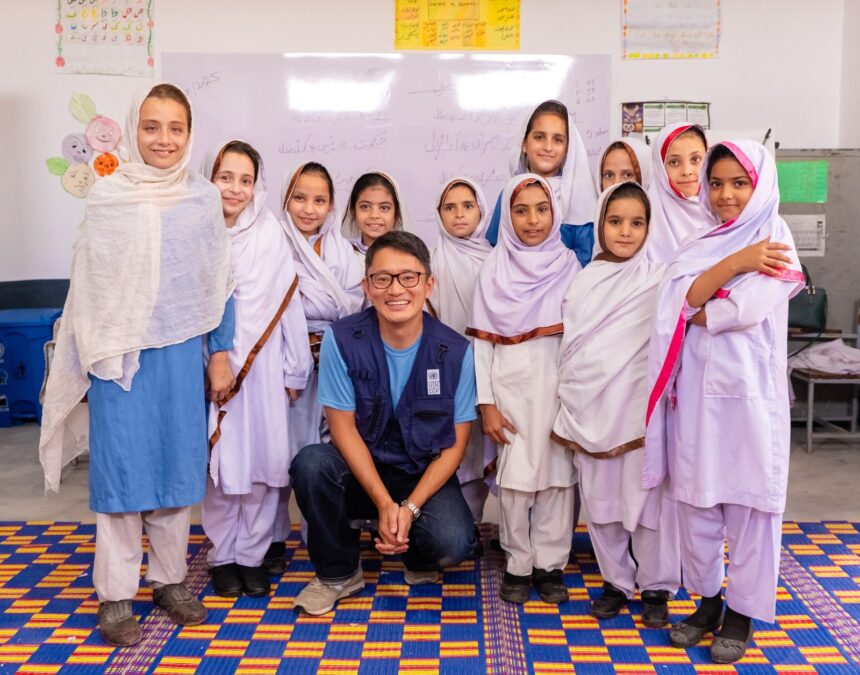A major initiative to strengthen the safety and resilience of school infrastructure in Khyber Pakhtunkhwa was celebrated at a handover ceremony at Government Girls Primary School Hazarkhawani, Peshawar, marking the successful completion of retrofitting works under the Disaster Resilient School Infrastructure (DRSI) Project. This project aims to ensure safer learning environments for thousands of children in one of Pakistan’s most disaster-prone regions.
Khyber Pakhtunkhwa has long been vulnerable to frequent natural disasters such as earthquakes and floods, which have compromised school buildings, disrupted education, and endangered students. To address these challenges, the DRSI Project—supported by the Japan International Cooperation Agency (JICA) and implemented by UN-Habitat and the United Nations Development Programme (UNDP), in collaboration with the KP Elementary and Secondary Education Department—has retrofitted 150 schools in eight districts. These improvements bring schools up to modern safety and resilience standards, benefiting over 31,000 students, including 13,000 girls. The project has also renovated 300 sanitation facilities and water supply points to support healthy, safe school environments.
The handover event brought together representatives from JICA, UN-Habitat, UNDP, the provincial education department, teachers, parents, students, and local community members. JICA Programme Manager Abrar Khan emphasized Japan’s commitment to enhancing disaster resilience in education, noting that the project’s interventions include not only structural upgrades but also essential Water, Sanitation, and Hygiene (WASH) facilities.
UN-Habitat Deputy Programme Manager Hamid Mumtaz highlighted the project’s comprehensive approach, which included structural assessments, site planning, construction supervision, and capacity-building for local stakeholders, all while preserving the schools’ traditional stone masonry. He underscored that these efforts support Pakistan’s obligations under the international Sendai Framework for Disaster Risk Reduction.
Echoing these sentiments, UNDP’s Flood Recovery Programme Manager Hisashi Izumi pointed out that school rehabilitation is about more than physical repairs—it represents hope and opportunity for children in affected communities, especially girls, and contributes to building a resilient future.
Khyber Pakhtunkhwa Provincial Assembly member Fazal e Ilahi expressed gratitude for the support from JICA, UNDP, and UN-Habitat, describing the retrofitted school as a model for resilience and a testament to the importance of investing in climate-resilient educational infrastructure.
Dr. Ruksana Farooq, Senior Planning Officer in the KP government, noted that while recent progress is having a tangible impact, the needs across the region are still greater than the resources available. She emphasized that broader investment and international support remain crucial to expanding disaster-resilient infrastructure, safeguarding children from future risks, and advancing toward global education goals that call for inclusive, equitable, and safe quality education for all.











